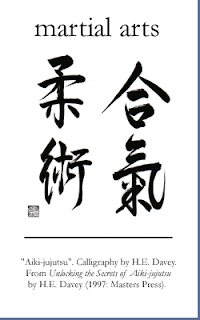 The Sennin Foundation Center for Japanese Cultural Arts offers a special program for children ages five and above. Since 1981, we've specialized in teaching young people traditional Japanese yoga and martial arts via fun, carefully structured classes. These classes present effective methods of controlling an opponent without excessive violence, and our overall emphasis focuses on the realization of each child's full potential. We stress learning to unite the mind and body in daily activities through practicing Japanese yoga and martial arts, which can in turn result in the discovery of our greatest human power.
The Sennin Foundation Center for Japanese Cultural Arts offers a special program for children ages five and above. Since 1981, we've specialized in teaching young people traditional Japanese yoga and martial arts via fun, carefully structured classes. These classes present effective methods of controlling an opponent without excessive violence, and our overall emphasis focuses on the realization of each child's full potential. We stress learning to unite the mind and body in daily activities through practicing Japanese yoga and martial arts, which can in turn result in the discovery of our greatest human power.
H. E. Davey Sensei and our instructional staff are black belt instructors, certified in Japan, who have extensive experience working with children. In fact, a number of the kids in our classes have visited Japan and demonstrated martial arts at the Kokusai Budoin Sogo Budo Taikai, an annual all-Japan exhibition held in Tokyo. What's more, several members of our adult program started practicing with us as children and now help teach our classes for kids. We offer instruction that can provide tangible benefits throughout the course of your life.
Our classes for kids have a number of important points to recommend them:
* Instruction in genuine jujutsu--one of the world's oldest and most effective martial arts
* Including Japanese yoga: stretching, meditation, breathing exercises, and more
*Small non-competitive classes, individualized instruction, private lessons, and multiple month discounts
* Separate classes available in Japanese systems of yoga, healing arts, martial arts, and fine arts (painting and calligraphy) for Mom and Dad
We think you'll find our patient staff of instructors can help your child cultivate confidence, concentration, and physical fitness. These are benefits that will clearly aid any young person in school, sports, or family life. If you're interested in giving your son or daughter an added advantage in life, contact the Sennin Foundation Center for information about an affordable martial arts program that teaches self-protection and much, much more. Parents can reach us at http://senninfoundation.com/.
 For a limited time only, the Sennin Foundation Center for Japanese Cultural Arts is offering a free month of instruction for children age five and above. If you live in the San Francisco Bay Area, and you'd like to get more details about this offer, visit http://www.senninfoundation.com/ or call 510-526-7518 (evenings).
For a limited time only, the Sennin Foundation Center for Japanese Cultural Arts is offering a free month of instruction for children age five and above. If you live in the San Francisco Bay Area, and you'd like to get more details about this offer, visit http://www.senninfoundation.com/ or call 510-526-7518 (evenings).



